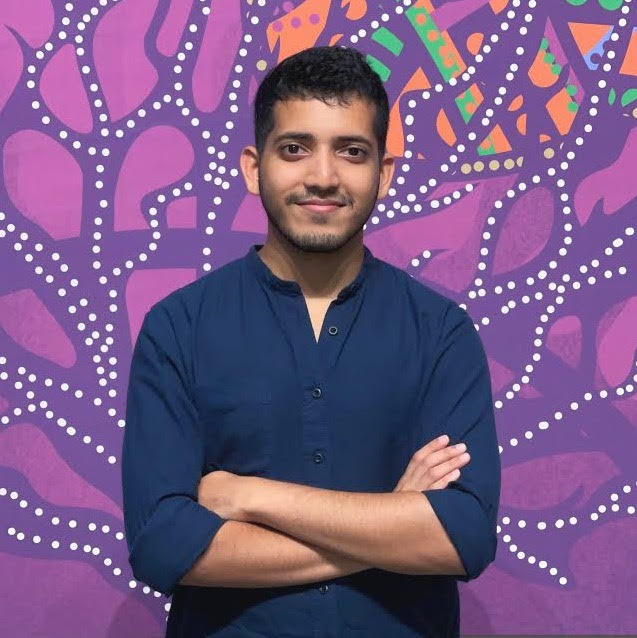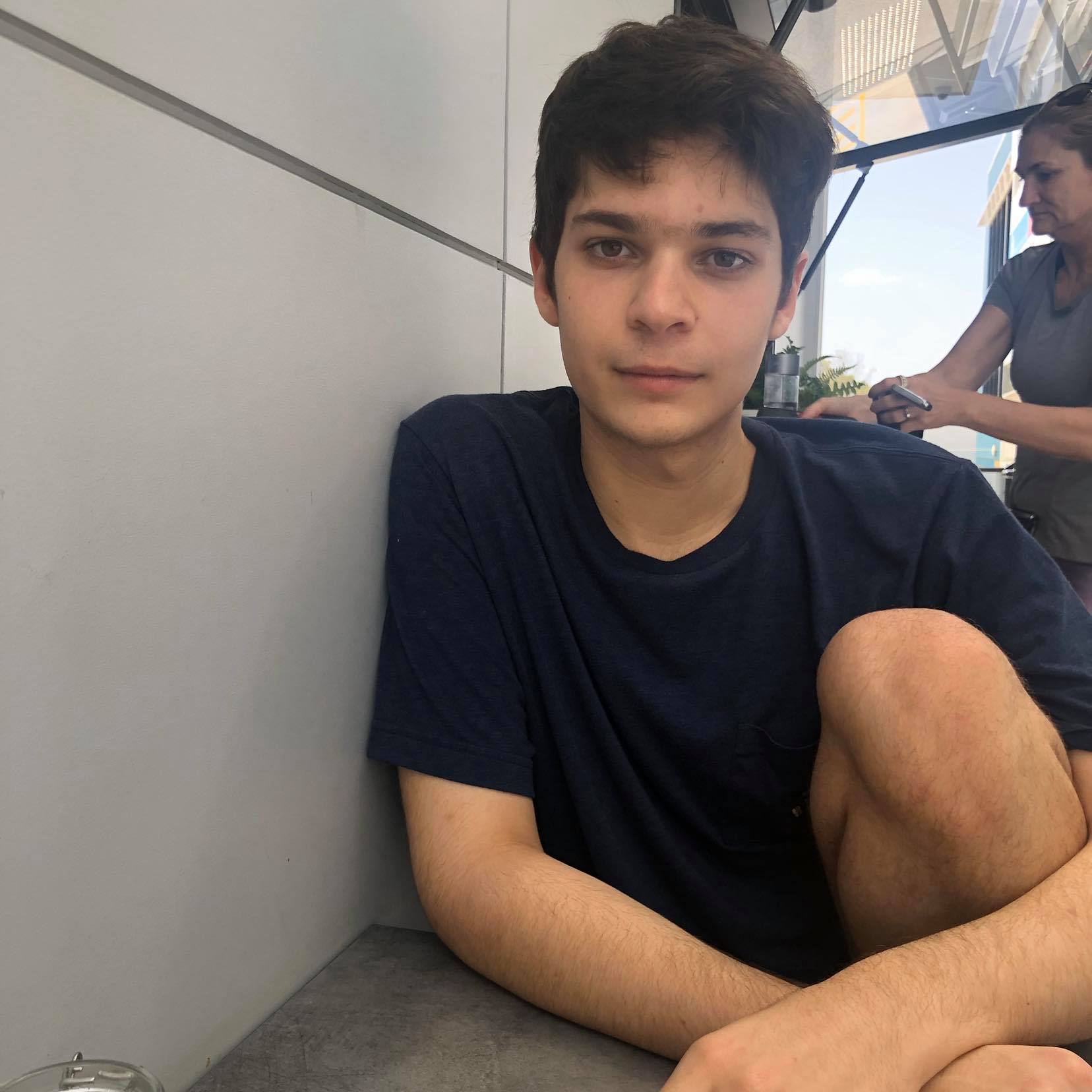Student Blogs for Men's Health Week
There is a growing awareness of the relationship between masculinities and mental health issues. Research has focused on providing insight into how certain forms of masculinity can be an impetus for men who are struggling with their mental health. Lifestyle choices and collective social norms inform how men come to understand themselves and their sense of well-being. As men struggle with mental health, some are reluctant to seek support as they 1) may not recognize their issues as legitimate and/or 2) view seeking help as admitting weakness.
Through a student-staff partnership approach, working in tandem with a representative across the university, we have combined our different experiences, perspectives and communal passion to work as a team to raise awareness for the UQ student body regarding masculinities and mental health.
The Power of Asking for Help: An International Students Perspective
In August 2020 I was diagnosed with something called persistent depressive disorder. Since I was 13 I've always felt a certain kind of sadness. I did not know what mental health was at that point and assumed everyone felt this way. I had constantly doubted my self-worth. I would always start something but soon after give up as I had felt that I'd never be good enough. I felt like a shadow.
2019 was probably the darkest year of my life. I felt stuck. I was sad to the point where I could not even cry anymore. I'd often describe my life during that time as a labyrinth of nothingness. While I was lucky to be able to distract myself with friends or by going to gigs, I would always return to my baseline. I would think about not being alive every day. I felt weak for not being able to go through with it. When I moved to Australia, I thought I'd left those demons behind, but it eventually came back.
Opening up to one of my friends about how I was feeling was the scariest thing I had ever done. It was also the best thing I have ever done. I found out that they had been going through something similar and linked me up with their psychiatrist. Asking for help has honestly changed my life. It has only been a few months but I'm the happiest I have been in such a long time. I have been doing more things that make me happy. I have started to learn how to play the drums! I've made so many amazing friends. I DJ’ed again after forever and donated blood for the very first time.
Most people are scared to open up in fear that they would be treated differently or they might even stop being friends with them but if they do well, they never deserved to be your friend or get to know you in the first place. Why should someone treat you any different for having mental ailment in comparison to physically being unwell?
It's tough to bring up the topic of mental health as a man and as a South Asian. In 2015 almost two-thirds of worldwide suicides were committed by men. But I am lucky to be in a time where mental health awareness is at its highest. If you are ever feeling down talk to a friend. You don't have to tell them all the specifics if you don't feel comfortable but it's a step. I know it's easy for me to say this but I've done it and it has made all the difference to my life.
Quoting my second favourite movie of all time 'the night is darkest just before the dawn' (Dark Knight). There are ALWAYS other ways out of the labyrinth of nothingness.

Abraham Sunil
Student of Information Technology
Done Being Dismissed: Queer Mental Health From A Queer Perspective
The LGBT community is a community of resilience. We have built a welcoming and supportive community which has allowed us to persevere in the face of oppression and minority stress. Despite this resilience and social support, struggles with mental health in the LGBT community is still a significant issue. LGBT individuals experience twice as much domestic violence and abuse, have greater susceptibility to depression, anxiety, and substance abuse, and are significantly more likely to engage in suicidal ideation and behaviour, carrying an increased risk of completing suicide. Furthermore, the 60% of trans men experiencing depression indicate that something needs to be done (Beyondblue, 2021).
It may feel like there has been progress, but we need to remember a four year old child is still older than marriage equality in Australia. Changing societal perceptions and treatment of queerness is going to take more than changing laws. Ongoing prejudice and discrimination continue to contribute to minority stress, where LGBT individuals and other minorities experience chronically high stress levels when compared to their counterparts in the majority. This stress is a contributing factor to the increased risk of various mental health issues in the LGBT community.
Additionally, despite progress, discrimination and prejudice are systemically embedded in every level of society. There is a lack of support and ongoing prejudice for LGBT youth in the fabric of many institutions. This leaves this vulnerable population at greater risk regarding their mental health and wellbeing. So, while it appears the general public has grown more tolerant, it truly has not been enough to combat the systemic, societal prejudices which undermine queer mental health.
Personally, I’m tired of it. I’m tired of society traumatising us in our youth and sweeping it under the rug as we age. I’m tired of watching my community fall victim to substance abuse, suicide, and suffering. I’m tired of being hurt by the very systems put in place to help us, the institutions making no effort to understand the queer experience. I’m tired of the school counsellors who assume people’s experience, the therapists that know nothing of queer relationships, and I’m tired of settling for the bare minimum of societal tolerance. We need an overhaul, because we are done fighting for tolerance when acceptance and support is what we truly need. How can we expect our community to flourish without that? We can only lean on resilience so much, because within the community of resilience lay countless individuals in pain who are suffering from the effects of prejudice on mental wellbeing and may not be able to be able to handle it much longer.

Foti Paradisis
Student of Psychology
References
Beyondblue.org.au. 2021. beyondblue. [online] Available at: http://www.beyondblue.org.au.
Cooke, Philip. (2018). Queer and Flourishing: Understanding the Psychosocial Well-Being of Non-heterosexual Men. ProQuest Dissertations Publishing.
Healey, J. (2007). Gay and lesbian rights. Spinney Press.
Mental Health in Lesbian, Gay, Bisexual, and Transgender (LGBT) Youth Russell, Stephen T ; Fish, Jessica N Annual review of clinical psychology, 2016-03-28, Vol.12 (1), p.465-487
Boys aren’t meant to cry, are they?
The Cambridge Dictionary defines masculinity as “the characteristics that are traditionally thought to be typical of or suitable for men” so why do we associate athleticism, toughness and strength with “masculinity”? And expect sportsmen to fit into this criterion of masculinity?
Recent research from Headspace found that male athletes work long hours on their physical conditioning while putting nowhere near the same effort into their mental health. Following their study, Headspace started the HeadCoach campaign involving Australian athletes and their tips for maintaining good mental health during their season. There was one thing all these athletes had in common. The stress, pressure, and negative thoughts and feelings that the athletes felt on the inside, were not visible on the outside, like the physical injuries they may suffer from overtime. Therefore, the athletes found it challenging to bring up such issues until they started to reach out and get help (see below for access to HeadCoach).
What this highlights is the struggle male athletes are faced with due to the expectation society places on them to be a certain type of “masculine”. In 2018, there were 3,046 deaths by suicide registered in Australia, over ¾ of which were males (Beyond Blue, 2020). The stigma surrounding men’s mental health and the reluctance to speak out due to seeming weak and not living up to the masculine stereotype expected of them, is both shocking and disheartening. Research by Doblyte (2020) found that male suicide rates are nearly four times higher than that of females. Further research found that men rely more heavily on maladaptive coping strategies including excessive alcohol or drug use while denying their mental health problems, than women and that is a result of trying to “protect their masculinities” (Doblyte, 2020, pg. 7).
I experience and witness the negative stigma around mental health on a daily basis; whether that be through insensitive jokes, watching friends or family silently suffer or through a “deep and meaning” conversation with a friend on a night out after a few drinks. I have found that as someone who identifies as female, any mental health struggles I have or my female friends have faced, has been recognised and accepted, and we have been offered support. Despite it not always being an easy conversation to have, I have never felt that I wasn’t fitting a “gender stereotype” or that I would be seen as weak for feeling down or low. I have come to notice and be frustrated by the number of males in my life that are silently suffering and don’t feel like it is the “right thing” to speak up for fear of seeming weak.
Research by the Victorian Health Promotion Foundation found that most people agreed that there is “pressure on men to live up to traditional masculine stereotypes, masculine expectations or outdated ideas of masculinity prevent men from living full lives, traditional gender stereotypes are limiting and harmful for boys and men” (Flood, 2020). Flood further highlighted that males are less aware of the societal pressure placed on them to “conform to a certain ideal of masculinity” than females, aligning with my frustration of the expectation society has on men and their masculinity.
The number of men in my life that have recently started to open up about silently suffering is more than I can count on two hands, and the circumstances around these confessions are almost always associated with alcohol. It shouldn’t take alcohol or other substances for males to feel like they can open up. During these talks with my friends, I always try and ask, “why haven’t you spoken about this before?” and their answers are almost always something along the lines of “boys aren’t meant to be sad” or “boys aren’t meant to cry” or “boys aren’t emotional” - how did we as a society decide this? How did we decide that we’d rather the men in our lives, our friends, our brothers, our fathers, be silent and suffer to be “strong”, than accept that they can be sad and they can and should talk about it?
I’m angry and I’m frustrated and i’m sad about the statistics surrounding male suicide rates in Australia. I’m angry that there’s a stigma around mental health, and frustrated that there is any sort of expectation that boys need to be masculine, and that being masculine means “being tough” and “showing no emotion”. We need to work together. We need to be better. We can’t keep losing our friends, our brothers, our fathers.

Martha Myers
Student of Business Management and Psychology
References
Beyond Blue (2020). Beyond Blue welcomes slight dip in suicide rates. BeyondBlue.org.au
Doblyte, S. (2020). ‘Women are tired and men are in pain’: Gendered habitus and mental healthcare utilization in Spain. Journal of Gender Studies. DOI: 10.1080/09589236.2020.1780420
Flood, M. (2020). Who is a real man? Most Australians believe outdated ideals of masculinity are holding men back. The Conversation.
